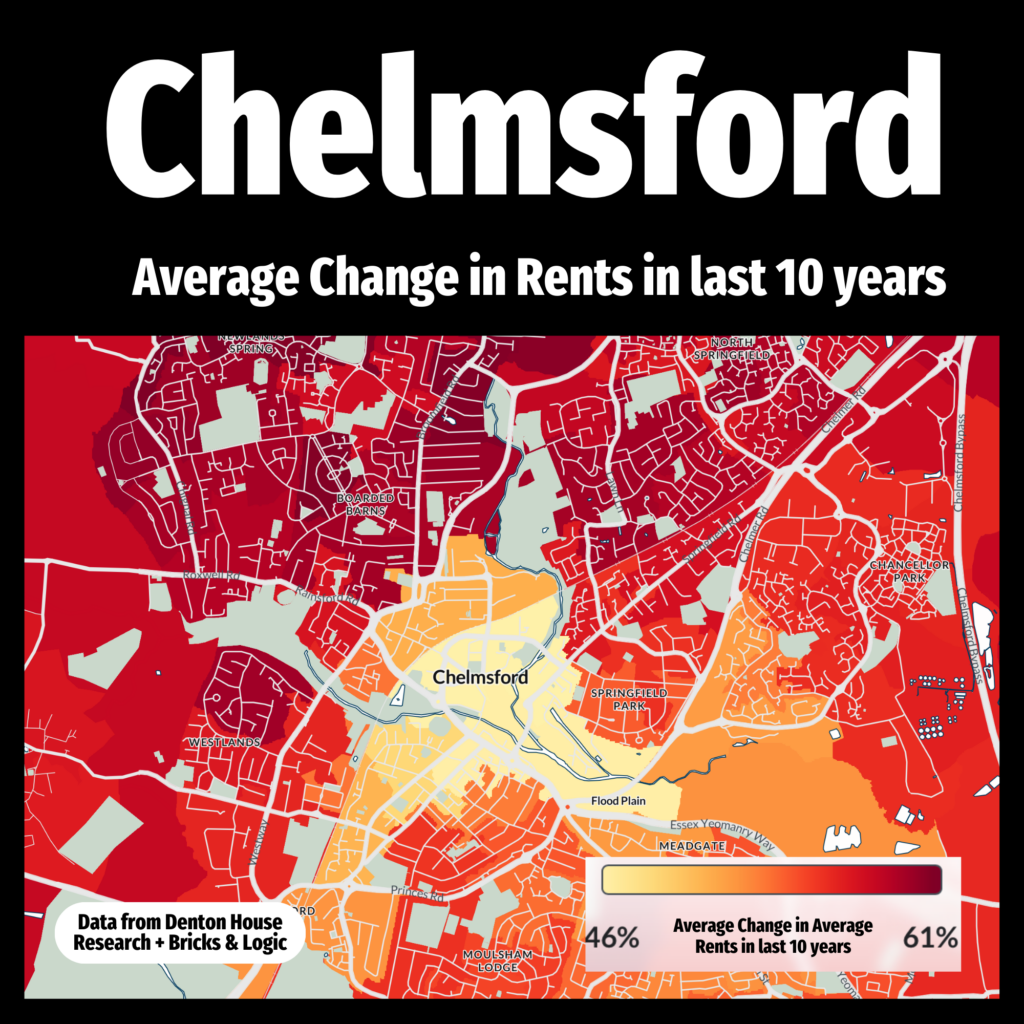 Landlord
Landlord
17 Apr 2025
Rents Increase Map in last 10 Years
Over the past decade, the rental market in Chelmsford h…

Landlord Rentals
In recent years, the UK rental market has become a focal point of political discussion, driven by issues of housing affordability, tenant rights, and landlord obligations. In response to this growing demand for reform, the UK Government has introduced the
Renters Reform Bill. This significant piece of legislation promises to shake up the private rented sector, offering more protection for tenants while also ensuring that landlords maintain fair practices.
This blog post takes a closer look at what the Renters Reform Bill entails and how it will impact both tenants and landlords across the UK.
One of the most talked-about aspects of the Renters Reform Bill is the abolition of Section 21 ‘no-fault’ evictions. Currently, landlords can evict tenants without giving any reason, providing just two months’ notice. This has left many renters vulnerable, with the fear of sudden eviction even when they’ve been good tenants.
Under the new bill:
For tenants, this change provides increased security and peace of mind. For landlords, it means being more accountable and ensuring evictions are based on genuine grounds.
To help resolve disputes, the Renters Reform Bill introduces a Private Renters’ Ombudsman. This is a critical addition designed to mediate between landlords and tenants and settle issues outside of court, saving time and costs for both parties.
This service will:
For landlords, this means they must comply with the Ombudsman’s decisions, ensuring a high standard of property management and tenant relations. For tenants, the system offers a more accessible way to resolve disputes quickly.
Unpredictable and unfair rent hikes have long been a pain point for renters in the UK. The Renters Reform Bill seeks to make rent increases more transparent and predictable.
Under the new rules:
For tenants, this creates more stability in their housing costs. Landlords, on the other hand, will need to ensure that rent increases are reasonable and in line with market conditions.
Another cornerstone of the bill is the extension of the Decent Homes Standard to the private rental sector. Previously, this standard only applied to social housing, but the government aims to raise the quality of all rental properties across the country.
The Decent Homes Standard requires:
This is a huge win for tenants, particularly those in older properties. Landlords will need to ensure their properties meet these standards or face penalties, including potential fines and being barred from renting until issues are resolved.
For many tenants, renting with pets has been a significant challenge. Landlords have historically been able to reject tenants who own pets, leading to heartbreak and housing difficulties for many animal lovers.
The Renters Reform Bill introduces a right for tenants to request to keep pets, which landlords must consider. While landlords can still refuse, they must provide a valid reason, and tenants will have recourse to challenge such refusals through the Ombudsman.
Additionally:
This change strikes a balance, giving pet-owning tenants more flexibility while also ensuring that landlords are protected from potential damage.
To ensure greater accountability, the Renters Reform Bill proposes the creation of a new digital property portal. This portal will require landlords to register their properties and demonstrate compliance with legal standards.
Key features of the portal include:
This will make it easier for tenants to identify responsible landlords and discourage rogue landlords from renting substandard properties.
While the bill offers greater protection for tenants, the government also acknowledges that some landlords need a faster process to reclaim properties when tenants break the rules. To address this, the Renters Reform Bill includes reforms to the court system, ensuring that legitimate eviction cases are processed more swiftly.
This includes:
For landlords, this should ease concerns about the abolition of Section 21, ensuring that they can regain control of their property when needed.
The Renters Reform Bill marks a major shift in the UK rental market. For tenants, it represents a significant boost in rights and protections, offering greater security and better living conditions. For landlords, it signals the need for more professional, accountable practices, with the threat of enforcement for those who don’t comply.
However, some landlords have voiced concerns that the bill may lead to unintended consequences, such as landlords exiting the market due to increased regulation or higher operational costs, potentially reducing the supply of rental properties and driving up rents.
Conclusion
The Renters Reform Bill is one of the most ambitious overhauls of the UK’s private rented sector in decades. By addressing the imbalance of power between tenants and landlords, the government aims to create a fairer, more secure rental market. While it may present challenges for some landlords, it also brings the opportunity to professionalise the sector, ensuring long-term benefits for both parties.
As the bill moves through Parliament, it will be crucial for both tenants and landlords to stay informed about the changes and prepare for the new landscape of renting in the UK.
If you’re looking for advice with selling, letting, buying or renting your home, we would be delighted to have the opportunity to discuss the options available. Feel free to call us on 0203 985 1976.
Lets get started! Our valuations are based on our extensive knowledge of the whole of the market.
Get a valuation